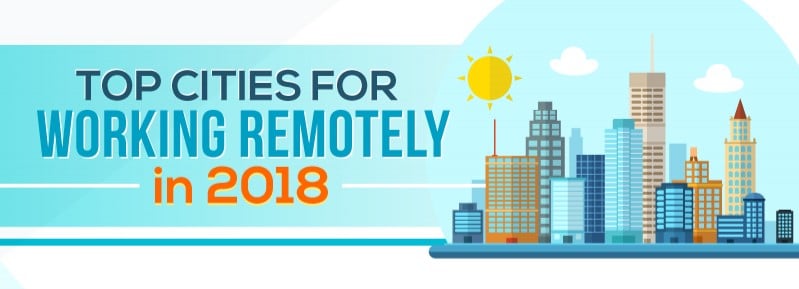Working remotely is the ideal lifestyle of so many in the working class, and why wouldn’t it be? Being able to work at home (or basically anywhere that’s not an office) basically entails that one can work to their heart’s content without having to deal with all the unnecessary details such as preparing for work, enduring the daily commute, and being uncomfortably stuck in an office cubicle from 9 to 5.
This type of workstyle has become so appealing to the members of the workforce and to jobseekers, especially with Millennials. In fact, it is reported that 68% of job-seeking Millennials are more inclined to remember and consider an employer if they are open with the idea of letting their employees work remotely and only require them to come to the office for important matters that requires more than a videocall or a Skype chat to discuss.
Aside from avoiding the hassle of having to prepare for work every morning and braving the daily commute to and from work, working remotely allows for less stress, as it makes employees avoid certain stimuli that may be negatively affecting their work quality, such as the crowd of coworkers that may be distracting them (mostly unintentionally), obvious office politics, pressure to establish and keep “work relationships”, and even avoid excessive expenditures – mostly on food and “hangout”. By working remotely, they can work in an environment that suits their needs and preferences the most, which reduces stress and improves their overall work attitude and output.
Speaking of the daily commute to and from work, it’s safe to say that working remotely is good for your health, mainly because commuting isn’t. The UK Office of National Statistics reports that commuters “have lower life satisfaction, a lower sense that their daily activities are worthwhile, lower levels of happiness, and higher anxiety on average than non-commuters.” Turbulent emotional condition can, and will, affect the way you work, and commuting seems to be one of the factors that can negatively impact it.
But working remotely doesn’t mean that you’re necessarily holing yourself up in your home office, experiencing the same things you would have otherwise done inside the four walls of a traditional office. In fact, many remote workers prefer actually going out of their homes still and working in places like coworker spaces, cafes, libraries, and other outside places. It boils down to where they feel the most comfortable and productive, because sometimes working at home can be even more distracting than staying at an office. There might be a multitude of other responsibilities that you might realize you need to address while you’re at home. That, or you might get sidetracked by everything else that you can do since you have them within arm’s reach.
One of the options you have to always have a change of pace and scenery while you work remotely is by travelling. Not only are you fulfilling the essential work-life balance simultaneously, but you are also making yourself open to new experiences and challenges that go beyond your local coffee shop or neighborhood hotspots.
Check out this infographic by Venture With Impact to see what cities are perfect for working remotely this year!







